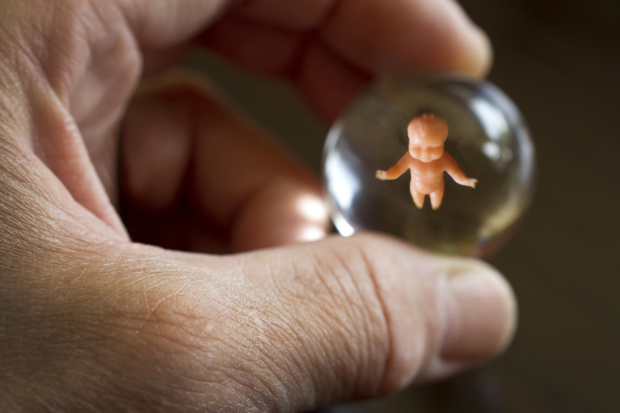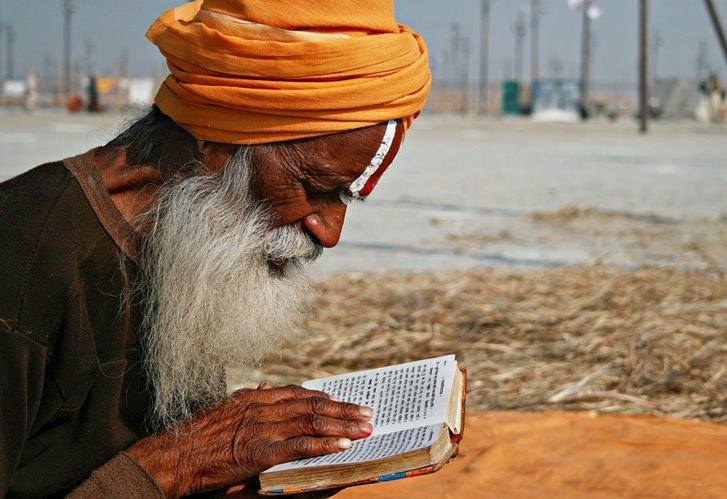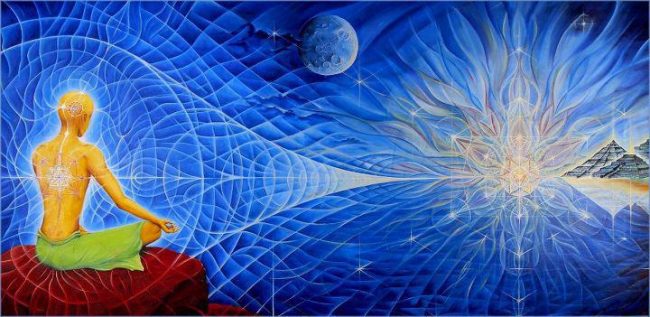It’s been a long while since I last wrote about Njanappana. I was on a break from my job for a couple of months and travelled a lot in India. I am back to the grind again till my next holidays!
So yea, I was listening to Njanappana a couple of times this week and I really missed sharing about it here! Here is the 9th part of Njanappana series. Please read Part 1 , Part 2, Part 3, Part 4, Part 5, Part 6, Part 7 and Part 8 if you have not yet…
- Njanappana- Malayalam Lyrics
- Njanappana- English Transliteration
- Njanappana- Meaning in English
- Njanappana- Comments in English
Part 9 : മനുഷ്യജന്മം
എത്ര ജന്മം പ്രയാസപ്പെട്ടിക്കാലം
അത്ര വന്നു പിറന്നു സുകൃതത്താല്!
എത്ര ജന്മം മലത്തില് കഴിഞ്ഞതും
എത്ര ജന്മം ജലത്തില് കഴിഞ്ഞതും
എത്ര ജന്മങ്ങള് മണ്ണില് കഴിഞ്ഞതും
എത്ര ജന്മം മരങ്ങളായ് നിന്നതും
എത്ര ജന്മം മരിച്ചുനടന്നതും
എത്ര ജന്മം മൃഗങ്ങള് പശുക്കളായ്
അതുവന്നിട്ടിവണ്ണം ലഭിച്ചൊരു
മര്ത്യജന്മത്തിന് മുന്പേ കഴിച്ചു നാം
എത്രയും പണിപ്പെട്ടിങ്ങു മാതാവിന്
ഗര്ഭപാത്രത്തില് വീണതറിഞ്ഞാലും
പത്തുമാസം വയറ്റില് കഴിഞ്ഞുപോയ്
പത്തു പന്തീരാണ്ടുണ്ണിയായിട്ടും പോയ്
തന്നെത്താനഭിമാനിച്ചു പിന്നേടം
തന്നെത്താനറിയാതെ കഴിയുന്നു.
ഇത്രകാലമിരിക്കുമിനിയെന്നും
സത്യമോ നമുക്കേതുമൊന്നില്ലല്ലോ
നിര്പോളപോലെയുള്ളൊരു ദേഹത്തില്
വീര്പ്പുമാത്രമുണ്ടിങ്ങനെ കാണുന്നു.
ഓര്ത്തറിയാതെ പാടുപെടുന്നേരം
നേര്ത്തുപോകുമതെന്നേ പറയാവൂ.
അത്രമാത്രമിരിക്കുന്ന നേരത്തു
കീര്ത്തിച്ചീടുന്നതില്ല തിരുനാമം!
കീര്ത്തിച്ചീടുന്നതില്ല തിരുനാമം!
Part 9 : The Human Life
Ethra janmam prayaasappettikkaalam
Athra vannu pirannu sukruthathaal!
Ethra janmam malathil kazhinjathum
Ethra janmam jalathil kazhinjathum
Ethra janmangal mannil kazhinjathum
Ethra janmam marangalai ninnathum
Ethra janmam marichhu nadannathum
Ethra janmam parannu natannathum
Ethra janmam mrugangal pashukkalai
Marthya janmathin mumbe kazhichu naam
Ethrayum panippettingu maathaavin
Garbha paathrahil veenatharinjaalum
Pathu maasam vayattil kazhinju poy
Pathu pantheeraandunniyaayittum poy
Thannethaanabhimaanichu pinnedam
Thannethaanariyaathe kazhiyunnu
Ithra kaalamirikkuminiyennum
Sathyamo namukkethumonnillallo
Neerppola poleyulloru dehathil
Veerppu maathramundigane kaanunnu
Orthariyaathe padu pedunneram
Nerthu pokumathenne parayavoo.
Athra maathramirikkunna nerathu
Keerthicheedunnathilla thirunaamam
Keerthicheedunnathilla thirunaamam
Njanappana – Part 9 : Meaning in English
How much have we struggled in the past many lives,
To be finally born here [on this earth as human beings] as the result of some of our good deeds.
How many lives we may have spent living in the excretions of humans and animals [as worms, etc],
And how many lives we may have spent living in the water [as fish, etc],
And how many lives we may have spent living in the mud [worms, etc],
And how many lives we may have spent living as trees,
And how many lives we may have wandered aimlessly as spirits,
And how many lives we may have lived as cows and other animals,
After all those struggles in the past lives,
We are finally born here as human beings.

After so much of struggle and effort,
We were finally nurtured inside the mother’s womb
We spend ten months inside the womb,
And spend another 10 – 12 years in childhood.
Rest of the lives we live wrongly identifying our “body” as “I”
Without realizing who we truly are.
We have neither any idea how long we would live,
Nor any idea what is the Truth,
Your body is like the bubble in the water
Which can breath,
Struggling and oblivious to everything,
Your breathing becomes narrow and stops.
All you have is such a short span of life,
Yet, we don’t use it to chant the name of of God!
Njanappana Part 9 : Comments
As we saw in one of the previous posts, poet Poonthanam Nambodiri beautifully describes how difficult it is for people in the other Yuga’s to attain moksha / liberation compared to attaining moksha in this Kaliyuga.
In Kaliyuga, the easiest way to attain moksha, according to the poet, is to do nama sankeerthanam? He asks, don’t we have tongues? Can we not use our tongue to chant the divine names of god instead of wasting all time in gossipping and blaming others?
In this section, poet talks about how lucky we are to be born as human beings. He says, we struggled so much in our past lives, sometimes even living as worms, etc. in the human and animal excretions, sometimes in water as fish, etc, and sometimes in the mud, and sometimes as trees! Sometimes we were dead and our spirits wandered around aimlessly. Sometimes we were born as cows and other animals. After all those struggles through many many previous lives, we have finally gotten a chance to be born as human beings in this world! Poet says, this must be due to some good deeds we did in some of our past lives!
He says, we should realize that, after so much struggles and effort, your life took form inside the mother’s womb, being nurtured by her for about 10 months inside her womb. Another 10 to 12 years of your life is spent in childhood. And when we finally grow up, we grow up with so much ego that we start to get entangled in the wrong idea of our body being the “I” and waste our life, without realizing the truth! The truth that you’re not your body!
We don’t realize that our body is like the bubbles in the water, the poet implying how fragile human life is, and by the time we realize anything at all in life, we see the breathing get thinner, and taking our last breath from this world. Throughout all that, wasting away life, why don’t we ever think of chanting the beautiful names of God, the poet laments!
“Ethra janmam prayaasappettikkaalam, Athra vannu pirannu sukruthathaal!”, here, the poet refers to “ikkalam” to the Kaliyuga that we currently live and by the word “athra”, he means this place, referring to Bharat (India). He says that, after so much struggle, it is only the result of some of the good deeds in our past lives that got us an opportunity to be born in this Kaliyuga in Bharat. As mentioned earlier, being born in Kaliyuga as a human being is considered to be a golden opportunity for us to escape the cycle of life and death, attaining moksha / liberation.
One of the most incredible facts about being a human is that we have intellect, ability to differentiate the good from the bad, the “viveka buddhi” (vivek – self control, the ability to discriminate and analyze, buddhi – the intelligence). Hence, being born as a human being is considered one of the most incredible opportunities for a soul. Everything else could be considered as a life in the lower plane – animals can’t think and act, nor the trees, or any other beings. No other living beings have the capacity to analyze and act according to their wisdom in a situation, but human beings.

At this point, we should remember one of the beautiful aspects of Sanatana Dharma – the belief that the only thing that we carry through life after life is our knowledge. They say, when a baby is in his mother’s womb, he already carries all the knowledge he attained in all his previous lives. So, all of us spend about 10 months in our mother’s womb with all that knowledge, however when we were born, and with all the conditioning from our societies, we tend to forget all that knowledge, and be ignorant of who we truly are. Then we get stuck with the wrong idea of the “body” being the “I”, completely ignoring the reality that, “I am not the body”. The conditioning throughout our childhood makes us in believing that the only thing worth in life is to chase money and material possessions, in turn, it completely derails ourselves from the very spiritual beings that we are.
We don’t realize the truth this mantra, “Soham”, meaning, “I am what He [God] is”. In Isha Upanishad, verse 16, it is said:
पूषन्नेकर्षे यमसूर्य प्राजापत्य
व्यूह रश्मीन् समूह ।
तेजो यत्ते रूपं कल्याणतमं तत्ते पश्यामि
योऽसावसौ पुरुषः सोऽहमस्मि ॥
pūṣannekarṣe yamasūrya prājāpatya
vyūha raśmīn samūha |
tejo yatte rūpaṃ kalyāṇatamaṃ tatte paśyāmi
yo’sāvasau puruṣaḥ so’hamasmi ||
Source: wisdomlib.org
It means, “O, Nourisher, O lonely Courser
of the heavens, O Regulator,
O Sun, thou offspring of Prajapati,
Remove Thy rays, gather up thy effulgence,
So that I may see that which is
Thy most auspicious effulgence.
The Person that is in Thee, That am I.”
One can only realize “I am what He is”, when we stop our misidentification with this physical body and are able to dissolve our ego. “Soham” is the merging of “I” with “THAT”, the “God”. It is the consciousness, the awareness that the only thing that never dies is our Atman, the Soul, which is indestructible. It is carried from body to body, witnessing everything that we experience life after life, and continue to progress.
Gita says exactly the same thing about atman, the soul:
न जायते म्रियते वा कदाचि
न्यायं भूत्वा भविता वा न भूय: |
अजो नित्य: शाश्वतोऽयं पुराणो
न हन्यते हन्यमाने शरीरे || 20||
na jāyate mriyate vā kadāchin
nāyaṁ bhūtvā bhavitā vā na bhūyaḥ
ajo nityaḥ śhāśhvato ’yaṁ purāṇo
na hanyate hanyamāne śharīre
The soul is neither born, nor does it ever die; nor having once existed, does it ever cease to be. The soul is without birth, eternal, immortal, and ageless. It is not destroyed when the body is destroyed. – Gita, Chapter 2, Verse 20.
That consciousness, the awareness that we are not this physical body is the Absolute Reality, the Ultimate Truth – in other words, the God!
We have forgotten that, “we are all what He [God] is” – that we are Brahman! We are here to live our life fully, with spiritual awareness and recognize the God within us and in each one of us! How do we achieve that? The poet says, the easiest way in this Kaliyuga is nama sankeerthanam!
And he sings,
Krishna Krishna mukuntha janardhana
Krishna Govinda Narayana Hare
Achyuthananda Govinda Madhava
Sachithananda Narayana Hare…
(Foot note: During Yoga or meditation, we could chant “Soham”. When we inhale, remember the sound of “Sooooooo”. When we exhale, remember the sound of “hammmmm”.
“So” means that, we inhale the powers of God and “ham” means that, we exhale our ego, the “I”!
Both Soham and Om mantras are the natural and unceasing sound! Om is the sound of “Silence” and Soham is the sound of “Air”! When we chant Soham, it enhances our Oneness with every living being and unite us with the God. “I am what He is”!)

